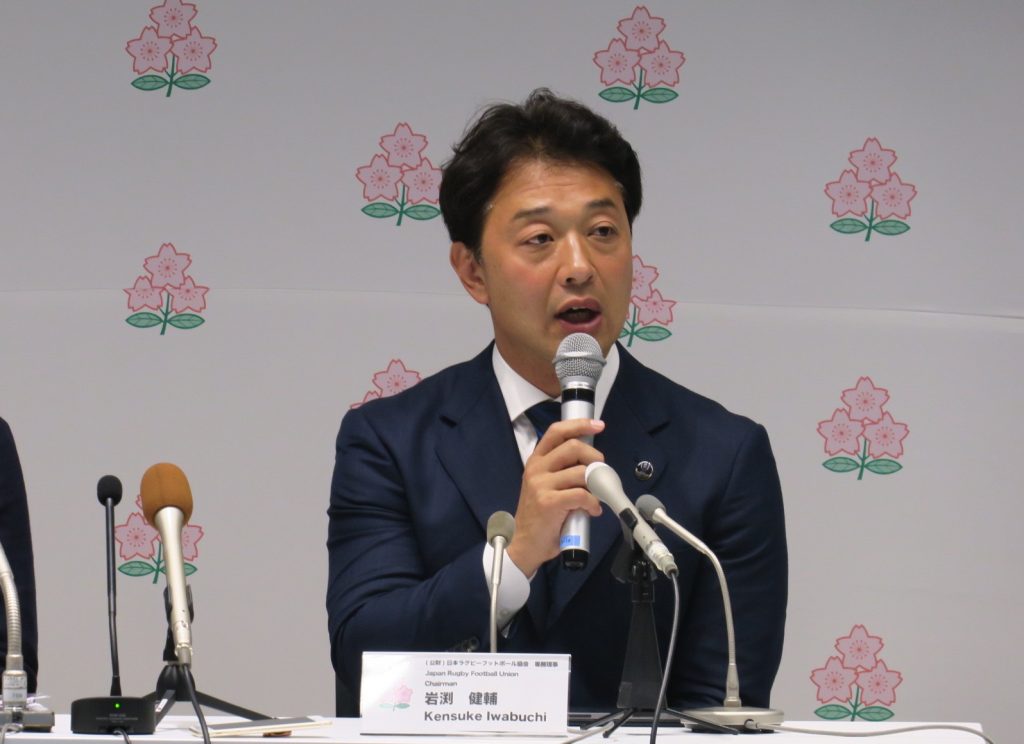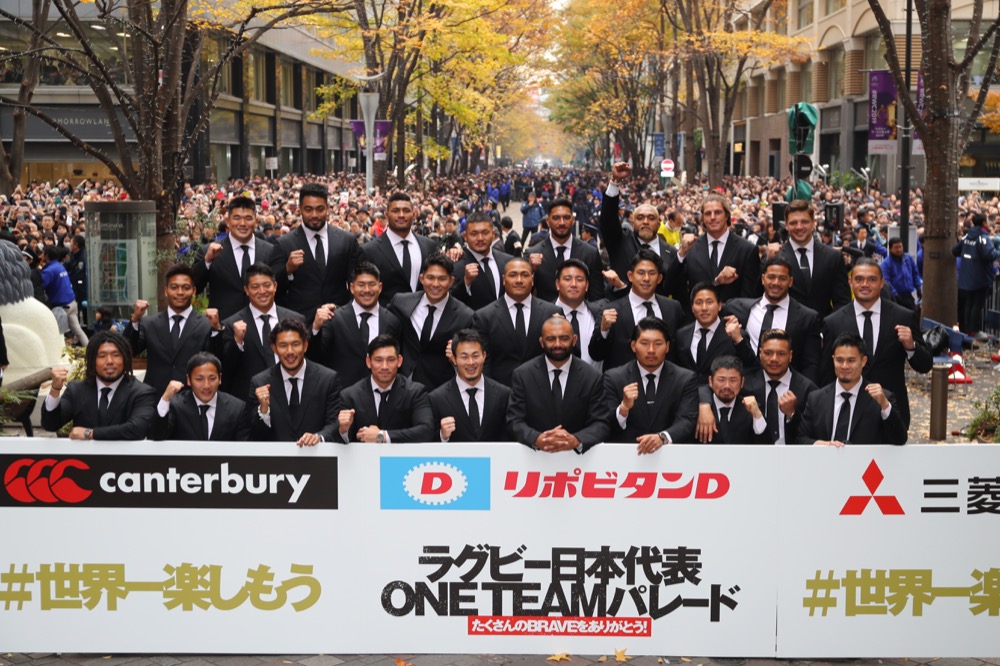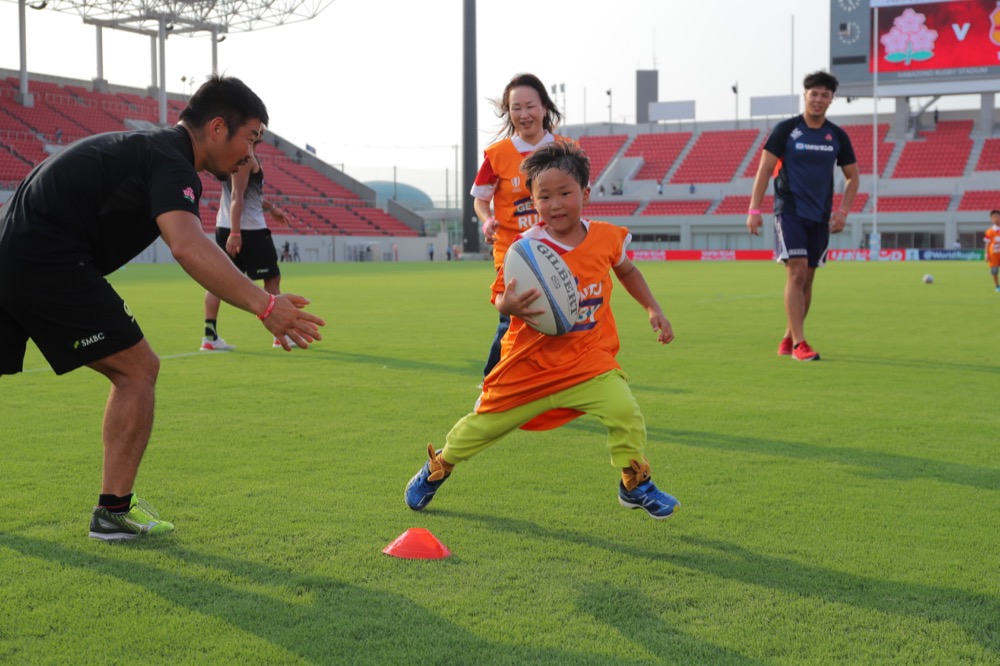
Japanese Rugby Charts Ambitious New Course
With the announcement of its latest Mid Term Strategic Plan, the Japan Rugby Football Union has set an ambitious new path for Japanese Rugby, as it transitions into its next phase of development following the successful hosting of Rugby World Cup 2019 and the challenges brought about as a result of the COVID-19 pandemic.

Running through to 2024, the Mid Term Strategic Plan (MTSP) will look at every aspect of Japanese Rugby, both on and off the field – from youth and grassroots rugby, right up to the national teams in women’s and men’s Fifteens and Sevens. Consisting of five strategic pillars, the plan places a strong emphasis on improving and evolving the commercial and operational management of the game, while also addressing how to increase participation across all levels and formats of the sport.
“We have high ambitions and a clear vision for the direction we want to take Japanese Rugby,” said Kensuke Iwabuchi, Japan Rugby Football Union Chairman. “We want to ensure that Rugby is easily accessible for players and fans at all levels, and that it’s an agent of positive social change. We want Japan to be recognised internationally as a leading rugby nation and have the ambition to bring Rugby World Cup back to Japan and to win the tournament as the host nation.”
The success of Rugby World Cup 2019 was a true watershed moment for Japanese rugby, with the Brave Blossoms, Japan’s national team making it to the knockout phase for the first time. Having famously beaten South Africa at Rugby World Cup 2015 in England, Japan lost to the eventual 2019 World Champions during their quarter final in Tokyo. Moving through the pool stages unbeaten against Russia, Ireland, Samoa and Scotland, the Brave Blossoms well and truly announced themselves as a new force in international rugby.
The Rugby World Cup had an incredible impact on raising the profile of rugby across Japan. While the strong performance of the Brave Blossoms was a major factor, the Japanese public were delighted by the tournament’s carnival atmosphere in which hundreds of thousands of visiting international fans interacted with Japanese fans in a spirit of friendship, respect and fun. Every match was a sell-out, with more than 1.8 million tickets sold in total, and over a million fans attended the tournament’s fan-zones located throughout the country. A domestic television audience of 55 million people tuned in to watch the Brave Blossoms play the Springboks in their quarter final.

“While some people might have been surprised by the success of RWC2019 and by how enthusiastically the Japanese public embraced the tournament, for people that know our rugby history, this was just another step in the ongoing development of the game here in Japan. The challenge now is to harness this interest, build on the successes of RWC2019, leverage the interest in Sevens Rugby as an Olympic sport and continue to build on the quality of our rugby at every level,” continued Iwabuchi.
“First and foremost, we need to improve our internal organisation and bring it up to a world class level in terms of professional sports administration. This is vital to ensure we build a strong and sustainable financial base from which to grow the game. We will look at every aspect including our financial planning and management systems, maximising the use of data and metrics, optimising our existing revenue sources, while also developing new business areas and pursuing areas of innovation.”
Alongside management and administration improvements, there will be a renewed focus on increasing the quality of Japanese rugby at all levels. Resources will be allocated to raise the standard and professionalism of training and playing environments, in terms of both physical infrastructure and the quality of coaching and support staff. This will take place at the elite level and filter down through club, university and high school rugby.

In order to harness the huge gains in awareness and interest of rugby among Japanese youth following Rugby World Cup, the JRFU will place significant emphasis on the development of participation pathways that give access and opportunity to anybody who wants to play the sport, in any of its formats.
Another key element of the MTSP will be the delivery and ongoing development of the New Japan League, set to be launched in 2022. Building on the successful foundation of the Japan Top League, the JRFU has the ambition to make the new league internationally recognised as the world’s best domestic club rugby competition. “We want to build a truly compelling competition that attracts and excites fans not just here in Japan, but across the entire world. Whether fans are watching live in the stadium or via television broadcast, we want to give our audience the best fan experience available anywhere in the world.”
Anybody who attended Rugby World Ccup 2019 matches in Japan, watched the Sunwolves play at home in Tokyo in Super Rugby or has tuned into see the Japan Top League 2021 will appreciate that the JRFU’s ambition of offering the ‘world’s best fan experience’ is not a hollow, unobtainable goal. With world class rugby on the pitch and a uniquely Japanese spectator experience in the stands, watching rugby in Japan is a special experience and something the JRFU wants to share with the world.
“Rugby in Japan is more than just a sport,” continued Iwabuchi. “We see all our constituents and stakeholders as part of our rugby family, and we will always work to ensure that Rugby remains a positive force in Japanese society. Building and maintaining the respect and trust of our fans, our younger generation of players and the wider community is fundamental for us to keep growing rugby here in Japan.”